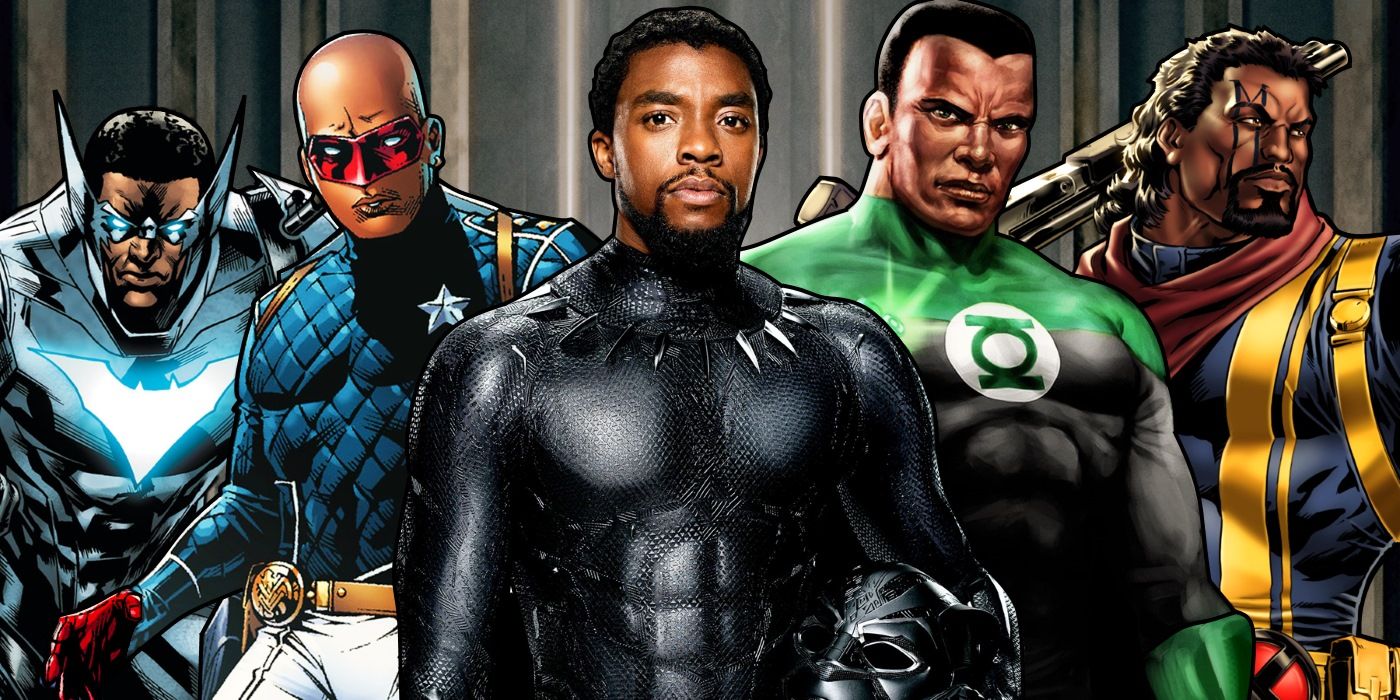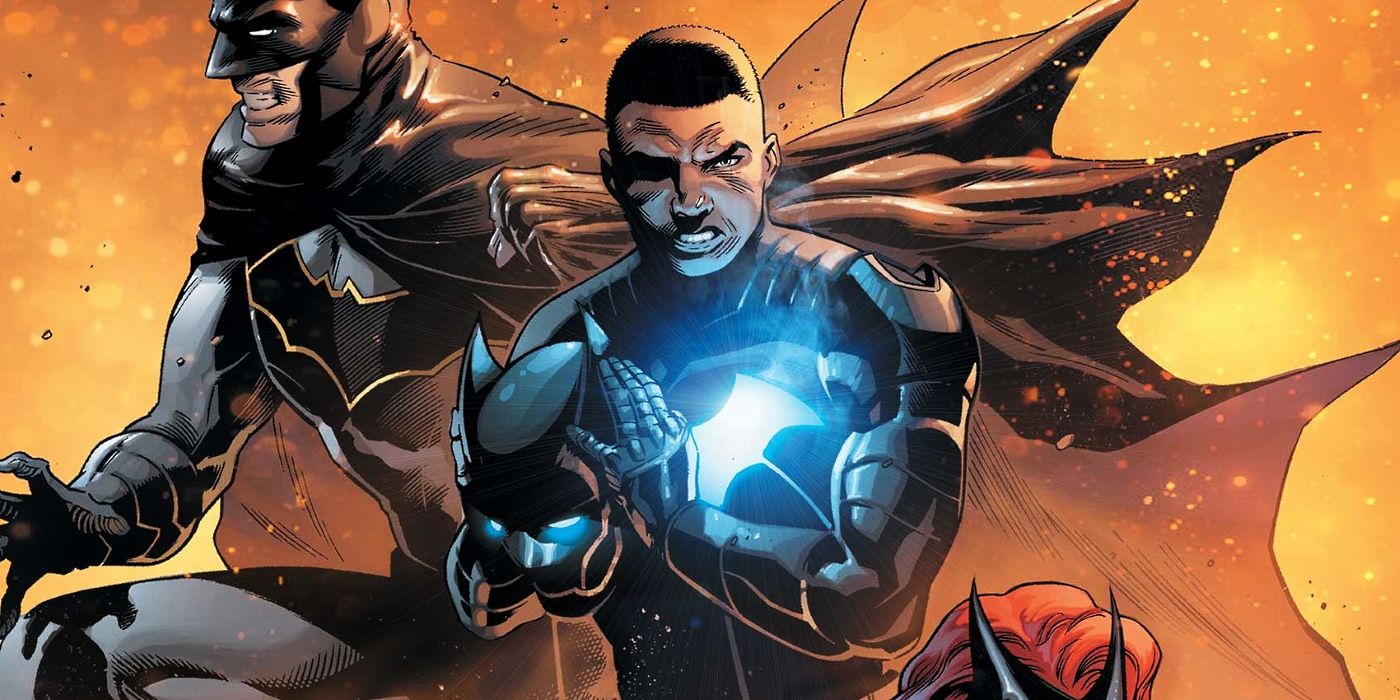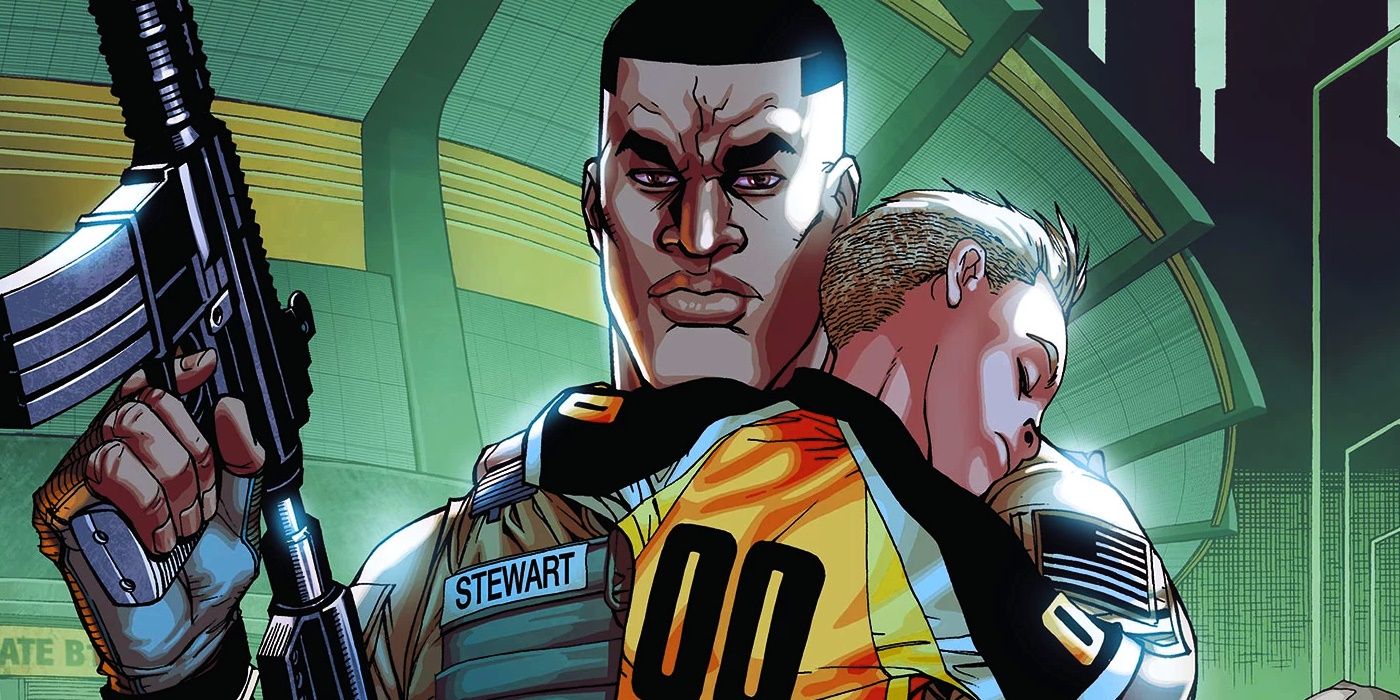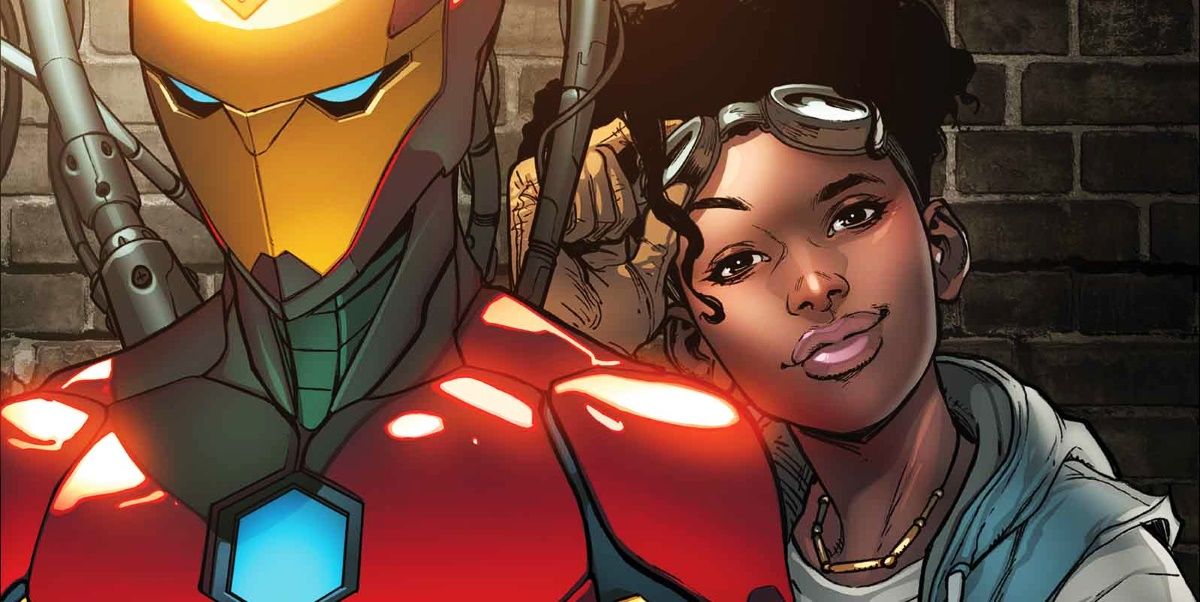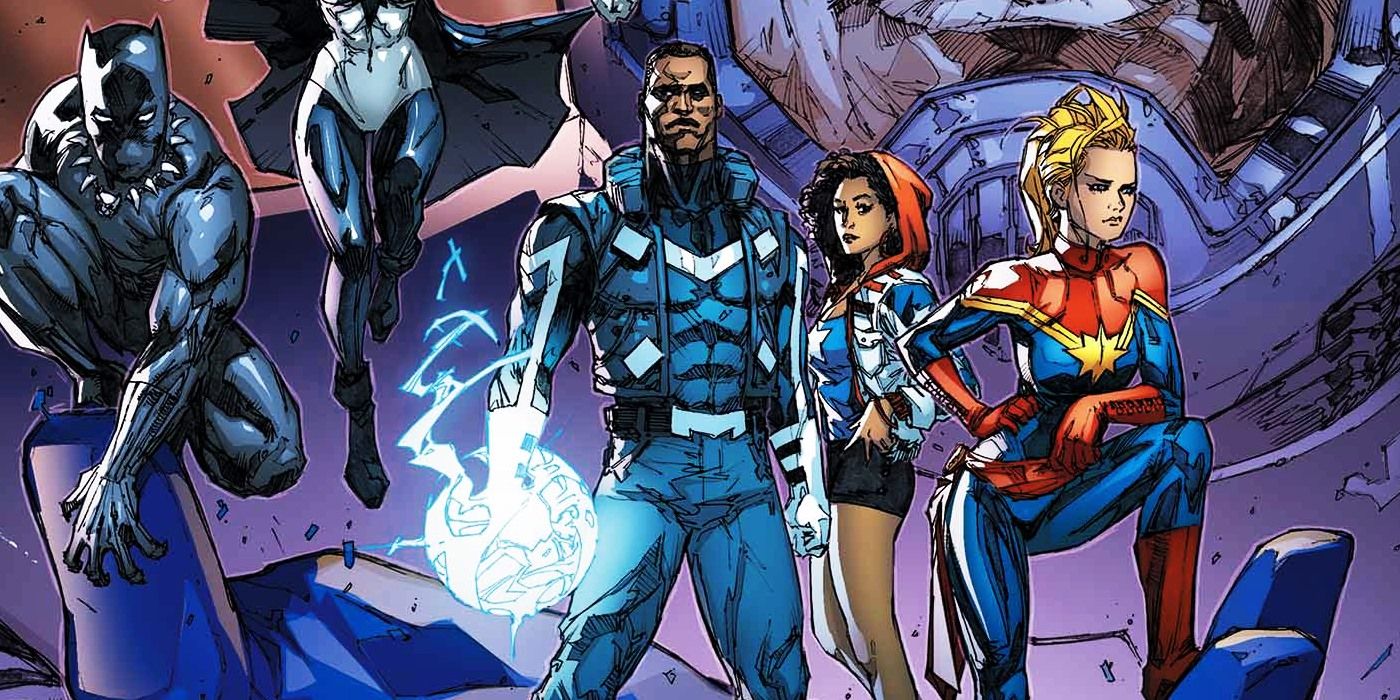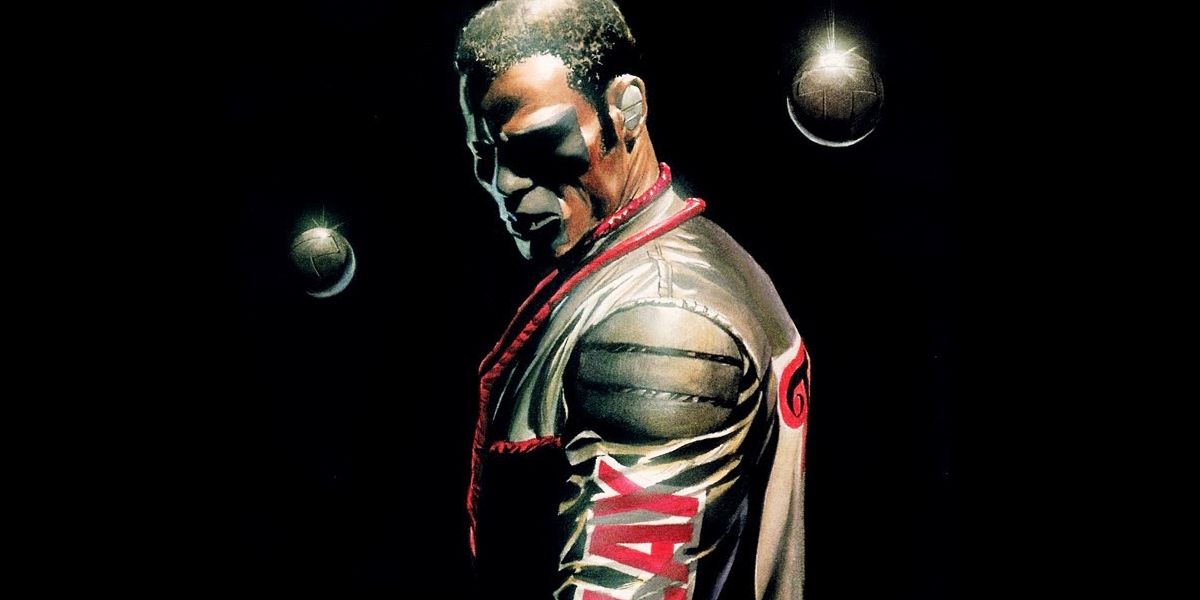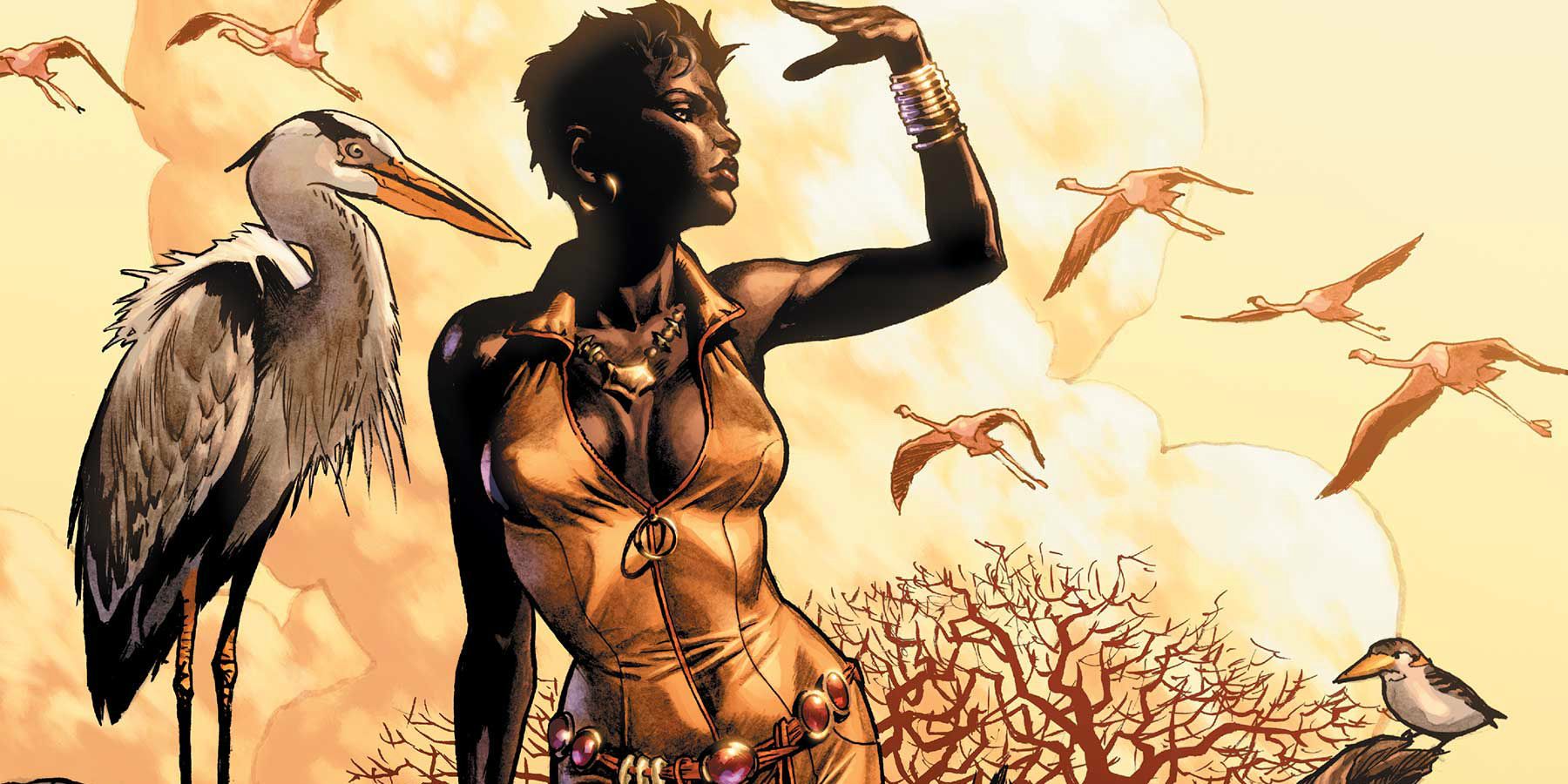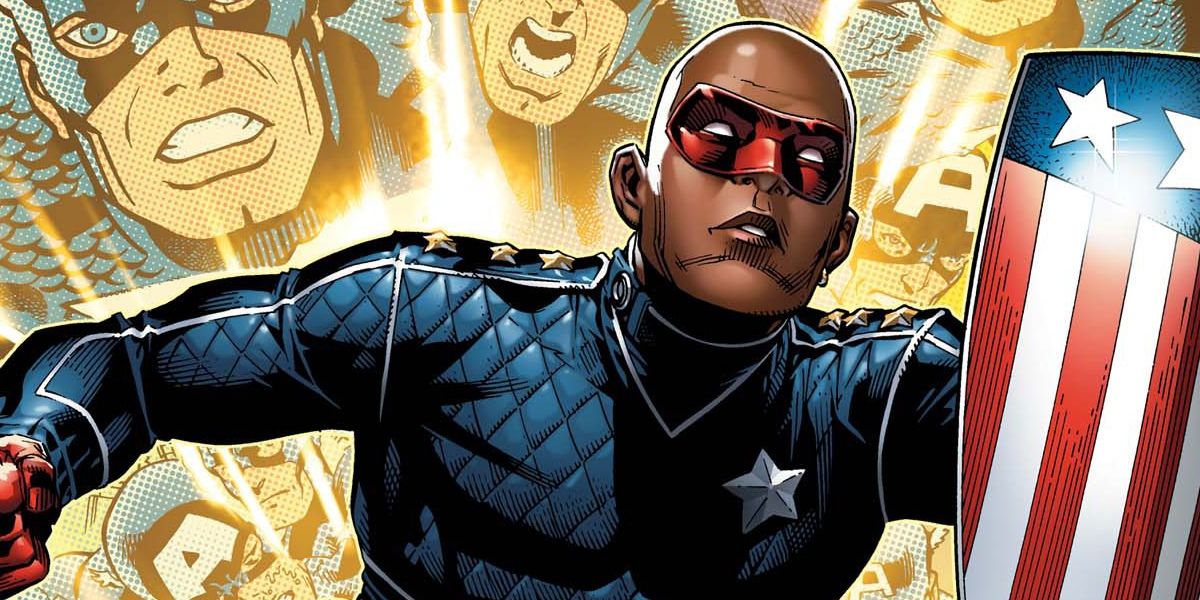The success of Black Panther has opened the doors to a new generation of Black superheroes in cinema. At least, that's the hope of fans demanding increased diversity in both stars and stories. It may have taken Marvel Studios almost twenty films to put a hero of color in the solo movie spotlight - and the first female lead is coming with Captain Marvel - but the damage has been done. Whether it was old ways of thinking, entrenched racial bias, or skepticism of audience turnout that's been keeping Black superheroes out of the blockbuster fun, Black Panther's box office success is impossible to ignore.
As the first true heroes of a distinctly American mythology, it makes sense that Superman and Batman are undying brands. But over time, the comics industry eventually gave rise to a new wave of heroes shaped by the stories and realities of Black America. These heroes were, and have continued to be exceptional in their own ways... and largely been denied movie franchises of their own. Movies that, Black Panther has proven, can succeed based on the strength of their stories and message - NOT the star's ethnicity.
RELATED: Every Record Black Panther Has Broken (So Far)
Heroes like Blade, Spawn, and Meteor Man showed that a diversity in characters meant a diversity in the stories to tell. So with the threat of superhero movie fatigue making fresh ideas, heroes, and subject matter paramount, we've got a list of Black superheroes who deserve a blockbuster adaptation. Whether it's Marvel or DC, these heroes can deliver the shot in the arm the genre needs - while delivering messages just as important as those of T'Challa and Erik Killmonger.
8. Luke Fox, Batwing
The first candidate may also be one of the most obvious - but it isn't the Congolese version of Batwing that we're interested in. Yes, the story of David Zavimbe's rise from the hardships of childhood in the Republic of Congo to becoming "The Batman of Africa" is a compelling one. But the similarities between Black Panther and Batman are hard to ignore already, so DC Films would surely appear to be copying Black Panther too directly. Instead, the story ready for film is the second to hold the Batwing name.
That honor goes to Luke Fox, the adult son of Lucius Fox, Bruce Wayne's famous corporate ally and mastermind of many of Batman's gadgets. He possesses every bit of his father's intellect, but is less than enthused at taking a job with Wayne Enterprises. From there, Luke's comic book path to the Batwing armor has varied. In a grittier origin, he competes in Gotham's boxing and mixed martial arts circuit, hoping to gain Batman's attention and be recruited. In a more dramatic turn, his father's brush with death leads Luke to swipe Lucius' latest Batwing suit and take to Gotham's skies.
It wasn't Black Panther's blackness that made him a strong character, and the same goes for Luke Fox. Imagine Bruce Wayne's determination and Lucius Fox's genius combined into a more modern Gothamite - then tell us that isn't a hero who deserves a big screen adaptation.
7. John Stewart, Green Lantern
Some comic fans might think it strange to see John Stewart on this list, since he's been a presumed star of the Green Lantern Corps movie from the start. Granted, that was before the Justice League controversy and subsequent WB/DC Films shake-up. But according to the film's writer, a Green Lantern Corps movie is still happening, even if the stars or release date are still up in the air. At the very least, it was expected that both Hal Jordan and John Stewart would star in Green Lantern rebooted. But with Black Panther proving audiences are more open-minded than old stereotypes suggested, there may be no better time to hand the reins over to John Stewart.
After all, younger Green Lantern fans know him as John Stewart first, thanks to the character's popularity in DC's animated shows and features (a move to increase the diversity of the team). For older fans, John Stewart is a famous Lantern in his own rite, introduced as a more socially-relevant figure concerned with issues that mattered to readers of all colors, not just sci-fi fans.
DC can have their choice. There's the original John Stewart, an architect living the harsh reality of Black America in Detroit (determined to not just save lives, but improve them). And there's the modern version, a former U.S. Marine who shows what military discipline can bring to the intergalactic police force (forget the green boxing gloves and slingshots). Heck, we're even on board with who Green Lantern's writer thinks should play John Stewart.
6. Riri Williams, Ironheart
Take one look beyond the record-breaking box office for Black Panther and into reviews and online conversation, and you'll find one surprise. Despite him claiming the title of the film, it's the women who surround T'Challa earning plenty of praise, excitement, and fan investment. And with good reason: Nakia (Lupita Nyong'o), Okoye (Danai Gurira), and Shuri (Letitia Wright) are all exceptional heroes in their own way, and valued by T'Challa for those very reasons. It shouldn't come as a surprise that audiences are as hungry for smart, inspiring superheroines as they are for leading actors of color - all things considered, it's the studio's easiest way to appear innovative, or reinvigorated.
That's why it's so hard to overlook Riri Williams in Marvel's current roster of young, inspiring heroes. No matter who wore the armor, the replacement for Tony Stark's Iron Man was going to make headlines. The fact that it was a young, African-American girl who matched Stark with her own wits and intellect made it that much sweeter. Riri was born a future super-genius. But her efforts to reverse-engineer her own Iron Man armor from one of Tony Stark's old designs is why she's a perfect hero for Marvel's family-friendly universe.
Wonder Woman proved to be a feel-good movie that created a new generation of female superhero fans (and not just females, let's be honest). If Marvel wants to do the same, while taking further steps to address calls for diversity in the MCU, Riri Williams fits the bill. So long as T'Challa's sister Shuri doesn't take Iron Man's role for herself...
5. Adam Brashear, Blue Marvel
Adam Brashear - better known as the Blue Marvel - is both the most direct and potentially most interesting option for a lead of color in Marvel's movie universe. From a superhero standpoint, the character was literally created by writer Kevin Grevioux as a Black Superman, meaning his powers are as impressive, with the added bonus of firing energy attacks. What makes the Blue Marvel so compelling from a story perspective is that he wasn't created as part of the modern Marvel Universe. He was born out of 1960s science fiction - specifically the link between the positive matter and anti-matter universes - into a world not quite ready for a Black superhero.
A brilliant scientist and Korean War veteran, Adam suffered a terrible accident in the form of a theoretical physics experiment gone wrong (stop us if you've heard this before). To put it simply, the exposure to the hoped-for energy flow between the two planes turned Adam into a super-efficient anti-matter reactor. Donning a supersuit (and mask), he became a beloved hero known as the Blue Marvel... until his mask was damaged enough for the public to see his "true color."
It would be a bit disheartening to think that such a story would be 'too political' for a Marvel film, but the potential for universe-building is there. After all, there was once a plan to introduce Ant-Man as a member of a 1960s version of the Avengers - and Infinity War has cast 1960s actors for unknown scenes. If Marvel wants to take a step back to the era of S.H.I.E.L.D.'s founding by Peggy Carter and friends, it would seem a shame to ignore such a period-specific superhero. Perhaps his forced retirement was purely for show?
4. Michael Holt, Mister Terrific
One of the reasons so many critics and fans have praised Black Panther is its decision to be about things, issues, and questions relevant to a modern audience. That applies to audiences around the world, Africa included. But there's no question that Erik Killmonger's mission and worldview is informed by modern America. So if American audiences are eager to see superheroes call out current crises, or acknowledge ongoing problems with no clear answers, Mister Terrific is up to the task. He may be an Olympic athlete and brilliant intellectual, but Mister Terrific's real superpower is one that every single audience member can achieve for themselves.
Even before he became a superhero, Michael Holt's genius was chalked up to his "natural aptitude for having natural aptitudes." In other words, there was no study, no science, no language, and no theory Michael Holt would encounter that he would abandon without achieving mastery of it. Not out of ego, either - he eventually was named chairman of DC's Justice Society without even wanting the job. But this is a superhero medium, so Holt's all-purpose, hovering T-Spheres, and his ability to appear invisible to all technology make him a valuable crimefighter.
That's not what makes him a perfect role model for superhero fans of all ages, though. When asked, Holt didn't chalk up his talents to an inherent genius, or physical edge. He believes that everyone has a talent... and his just happens to be learning. And if a superhero who rubs shoulders with Superman and Wonder Woman can get there through a passionate love of learning, what better lesson is there for today's audience, when hitting the books or intellectual curiosity can be seen as a waste of time?
3. Mari McCabe, Vixen
There’s a good chance that most DC Comics fans will know Vixen by now, if not for her role in the modern comic book Justice League, then as a cast member of The CW’s Legends of Tomorrow. Vixen, originally named Mari McCabe grew up an orphan in Zambesi, Africa, after her parents were both killed by warlords. The reason for their death was an ancestral connection to an object called the Tantu Totem - a necklace granting the wearer special powers.
On the surface, that couldn't sound more like a gender-flipped take on Black Panther if it tried. But the hook is that Mari willingly left behind that part of her life and family legacy. Her story picks up as a full-grown adult in America, having used her beauty (and wits) to become a successful fashion model. Well, more accurately, a powerful woman who uses her position and wealth to fund charity programs so children can avoid the trauma of her own family. In a way, starting where Black Panther ends in his solo film.
But sooner or later, that Tantu Totem will be ignored no longer, and Mari must fully embrace her family's legacy. Whether in her original Zambesi home or adopted one in America, Mari uses the Totem to become Vixen, connecting with all the animals of the world and channeling their individual strengths and abilities as needed. Which means Mari's message is one of community outreach, and philanthropy. But her movie abilities are as limitless and groundbreaking as the filmmakers want them to be.
2. Lucas Bishop
The Black Panther movie blew the old theory that a Black superhero would be less appealing to worldwide audiences completely to pieces. For Marvel, that makes a big win.... and for the world of X-Men, it means a movie hero may finally get the attention that his story rightly deserves. Because if Lucas Bishop's skin was a different color, it's hard to believe he wouldn't already be a household name in the sci-fi/superhero set.
Bishop is born in the distant future of Earth, one in which the famous Sentinel robots brought the mutant population to its knees, placing them all in internment camps. After being raised in one such camp, humans and mutants joined to defeat the overzealous Sentinels, and forge an uneasy peace. A fragile peace, too, which led to the formation of the Xavier Security Enforcers: Mutants entrusted with hunting and catching mutant criminals, so humans don't have to. Bishop was one such officer, wearing the 'M' brand from his internment camp as a badge of honor.
The name 'Xavier' is no coincidence, as Bishop and others dream of the past, when mutant superheroes were a symbol of hope. So when Bishop pursues a mutant criminal back through time, and meets the X-Men in their (modern) heroic age, it's a blend of wish fulfillment and time travel that sci-fi and superhero fans would eat up. With the X-Men rights now held by Marvel, and the darker, more cynical setting of Logan proving just as refreshing to audiences, there's no better time to make Bishop the movie star he's long deserved to be.
1. Eli Bradley, Patriot
There is no shortage of young Captain America superfans in the Marvel Comics Universe, and the movies have kept that fact alive and well. Whether it's Tom Holland's Superman or Paul Rudd's Ant-Man, Cap's fame and example precede him wherever he goes. In the comics, one such super-soldier superfan is Elijah "Eli" Bradley. But it isn't just Steve Rogers who Eli admires... but his grandfather, another WWII super-soldier created by almost the same process. The reason the world never heard about Isaiah Bradley? Well... most modern fans can guess. After all, there's a reason authorities were more willing to test Dr. Erskine's science on an African-American subject.
Isaiah became a Captain America in his own rite, as one of the few survivors of a Tuskegee Experiment-esque trial. While his grandson Eli respected his grandfather's powers, he never inherited them himself. But when he was recruited as a potential successor, Eli lied about having super-soldier powers, and took the Golden Age Marvel hero's 'Patriot' name for himself. Eli's dishonesty eventually caught up to him, but his heroic heart was rewarded when he sacrificed his life for another... and woke up to a blood transfusion from his grandfather, granting him the abilities he dreamed of using for good.
With a story blending together Spider-Man levels of 'dreams coming true' with Captain America's legacy, and basing it all in the racial politics and medical controversies of America's past, it's a film that would turn heads. In fact, it's no surprise that Black Panther tried to include Eli Bradley. But he's deserving of a movie all his own, helping the reputation of Marvel's greatest heroes fuel the creation of the MCU's version of Young Avengers. And now that Black Panther has embraced, not shied away from racial injustice, Eli Bradley is a fitting hero for Marvel's future.
-
Those are just some of the Black superheroes that Marvel and DC have not (but should have) adapted to movies thus far. Heroes and stories that there is little excuse NOT to make, now that Black Panther has proven the hurdles and excuses for a lack of African-American faces make everyone worse off. If you think there are other heroes with important stories that need to be told, and deserve a spot on our list, be sure to mention them in the comments.

